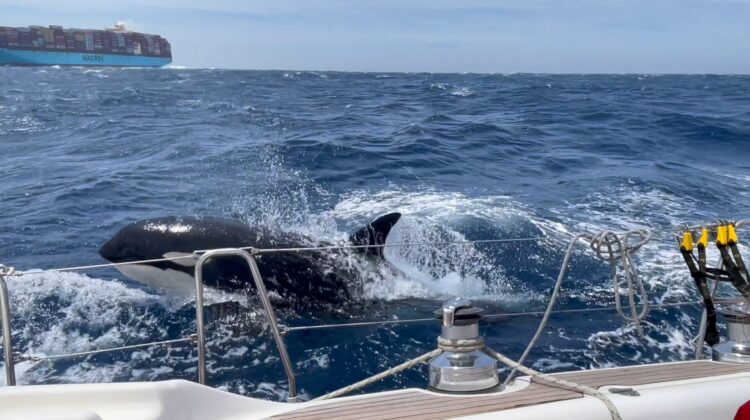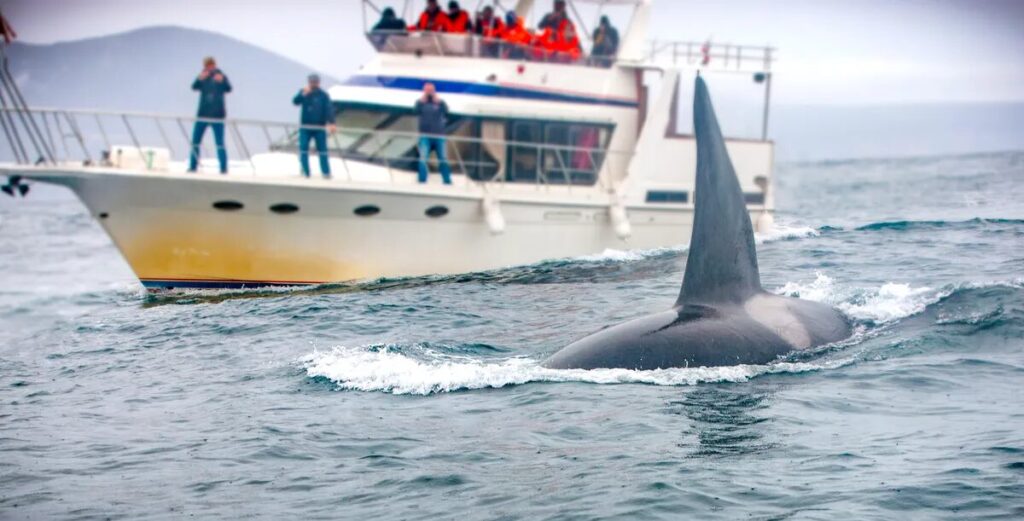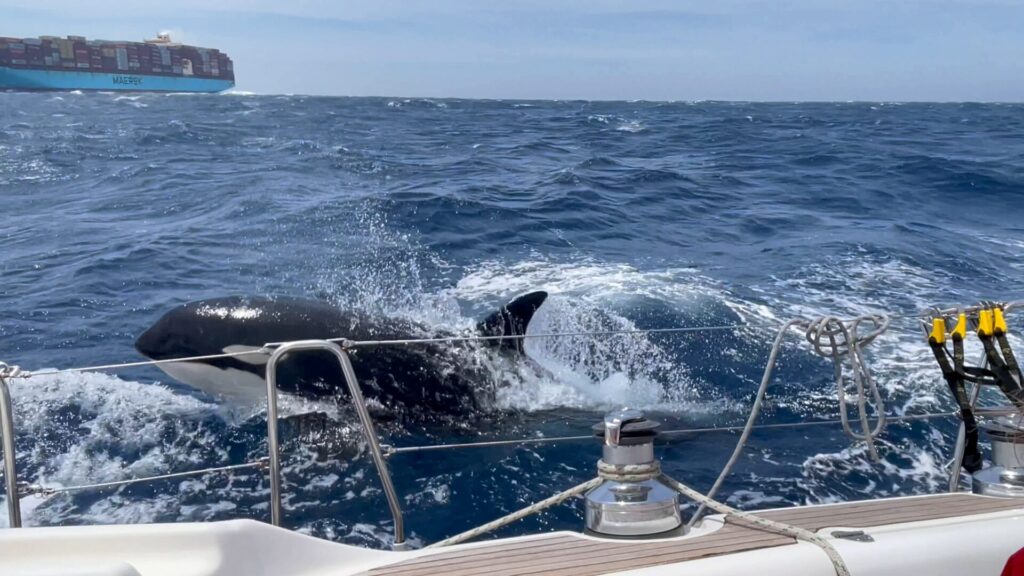
On October 31, 2023, an extraordinary incident unfolded in the Strait of Gibraltar as an orca pod relentlessly targeted a Polish yacht for 45 minutes, ultimately causing it to sink near Tangier Med port. Despite the yacht’s destruction, the crew emerged unscathed, thanks to the swift intervention of port tugs and the Moroccan Navy.
This harrowing event, shared by Morskie Mile—a Mediterranean sailing holiday operator—revealed how the orcas repeatedly struck the yacht’s rudder blade, inflicting severe damage. The incident reignites debates about orca behavior, particularly their increasingly forceful interactions with vessels along the Iberian Peninsula since 2020.

Image credit: Bborriss.67/Shutterstock.com
Are Orcas Becoming Aggressive or Misunderstood?
Marine biologists are cautious about labeling these interactions as “attacks.” While the behaviors may seem aggressive, experts lean toward alternative explanations rooted in the orcas’ natural curiosity and social dynamics. Some researchers suggest these incidents may be part of a playful fad, similar to trends observed in human social behaviors.
The rise in orca encounters, which range from minor bumps to sinking vessels, could also be tied to past trauma. It’s theorized that the initial behavior might have stemmed from cautionary actions by orcas injured by boats, which subsequently evolved into a shared activity among their pods.

Why It Matters: Conservation at Stake
Understanding these behaviors is critical, particularly as Iberian orcas are a critically endangered species. Misinterpreting their actions as hostile could lead to misguided retaliation, further endangering these marine mammals. Marine scientists stress the importance of avoiding an antagonistic narrative and instead focus on fostering coexistence through research and education.
How Should We Respond?
The incident serves as a reminder of the delicate balance between human activity and marine ecosystems. Conservationists urge governments and sailors to invest in protective measures, such as noise-reducing boat technology and policies limiting vessel traffic in critical habitats. By addressing the root causes of these interactions, humanity can protect both its vessels and the majestic orcas that share our waters.

Leave a Reply